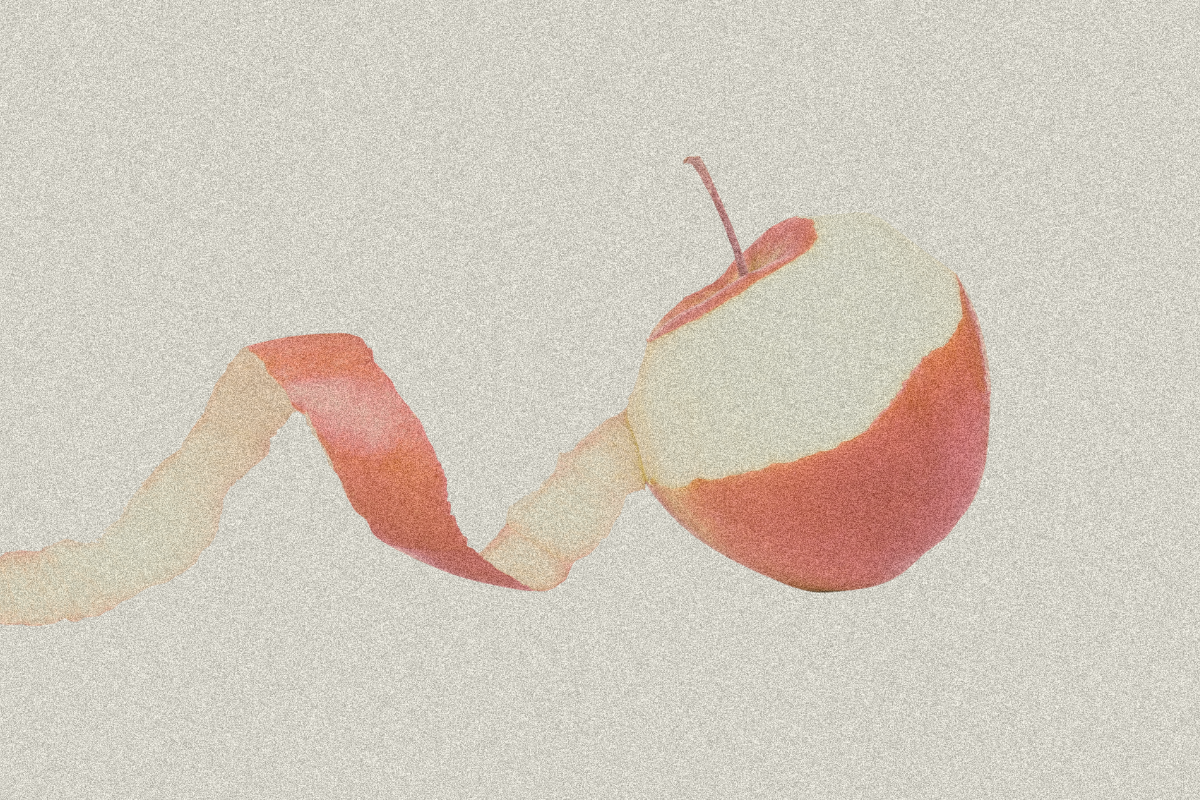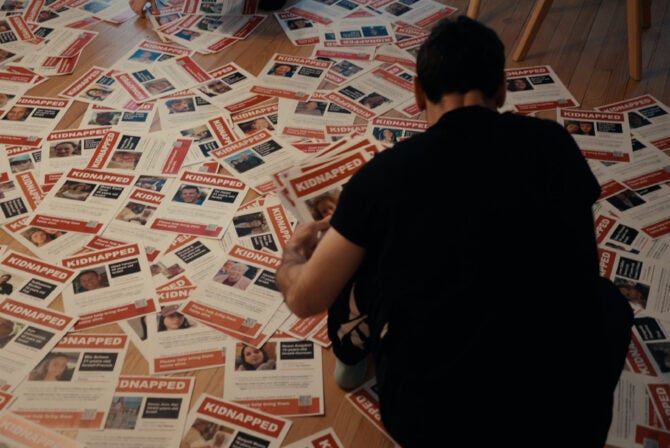There’s a painting of an old man that hangs in the foyer of my aunt’s home in Atlanta. In the painting, the man — Reb Mechel, as my sisters and I were once told — is gazing down through circular lenses at the apple he’s peeling. His brow is furrowed and his long, white beard rests against his chest, while a red spiral hangs from his knife. Beyond the perfection of that peel, I couldn’t remember much of the story that accompanied the painting. So, naturally, when I found myself thinking about it recently, I called my mom.
The story goes like this: Reb Mechel was sitting on a bench in the park, where a young sister and brother were playing nearby. When the children grew tired, they went to sit on the bench where Reb Mechel was peeling a big, juicy apple. He offered half to the girl and half to the boy, but they started to argue over whose half was bigger. They pushed each other, and fell to the ground, and when the man went to pick them up, a police officer saw what was going on, thought that he was hurting the kids, and arrested him.
The siblings went running over to their mother to tell her what had happened. They knew that it was really their fault for fighting and pleaded with their mom to go down to the police station and get him out. So they all went, the man was released from jail, and the brother and sister agreed never to fight again, and to appreciate what they had.
This was a story told to me and my three sisters at bedtime and on family holidays. The four of us would huddle together, an eager audience to the uncle who liked to use different voices. The lesson was, if I recall correctly, always effective for a short time. With our hearts still bruised by the unfairness done to Reb Mechel, we promised not to argue.
What strikes me now is not so much the moral of the story behind the painting, but the telling and retelling of the story itself.
Back then, the tale was so vivid; the dialogue colored with Yiddish phrases, the details as crisp as Reb Mechel’s apple.
But that was years ago, and my sisters and I hadn’t retold it to any of the 10 kids we have between us. It has been lying dormant, along with the Yiddish embellishments, and it makes me wonder whether Reb Mechel will live on as a parable in our family, or if this is where it stops.
For many of us, this time of year lends itself to reflection, which in turn, amps up the desire to say the prayers, tell the stories, cook the meal… do the things that ground us in our religion, and in our identity. But, in my experience, this surge subsides within a month or so, and the desire I felt around the High Holidays is already pummeled by meetings, appointments, activities and the like.
Maintaining tradition, even a little story, takes a degree of slowing down. It takes a Shabbat evening without the competing noise of devices, or a dimly lit room at bedtime, or, in my case, a rainy afternoon.
Recently, on a wet, New York City day, I finally shared the story of the kind, old man with my 10-year-old son. I told him of Reb Mechel while standing over the garbage can in our kitchen, peeling the skin off of his apple (sadly, hacking away instead of slowly working it into a perfect spiral). My retelling was watered down, absent of Yiddish, and did not involve different voices, but it held his attention all the same.
“And he went to jail?! But he was just trying to help.” My son, the empath, heard it the same way I had as a child. My version wasn’t perfect, but the lesson still landed, and later that night, I overheard him with his younger siblings: “So there was this man…”
Did he get all the details right? No, not yet, in the same way that my chicken soup doesn’t taste exactly as my mom’s does… yet.
But we keep trying. We keep saying the prayers, cooking the meals, telling the stories. Because even though modern Judaism has a lot more to compete with now than it ever has before, this is not where it ends.








